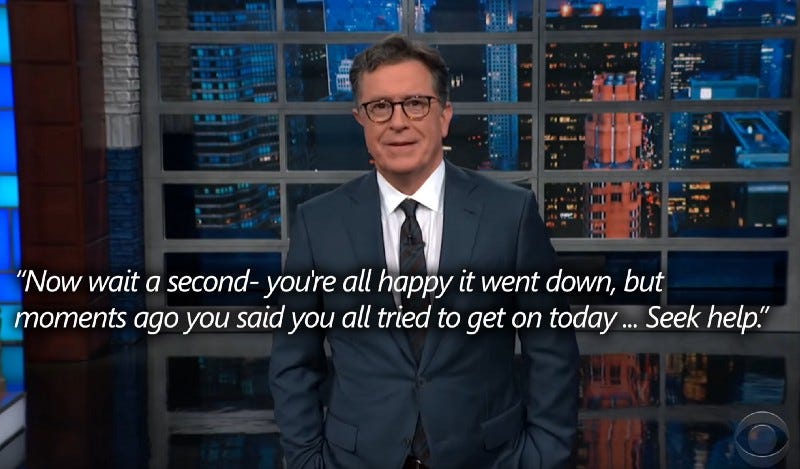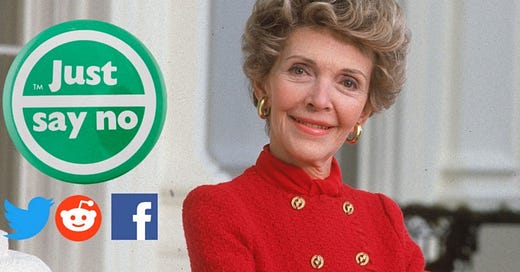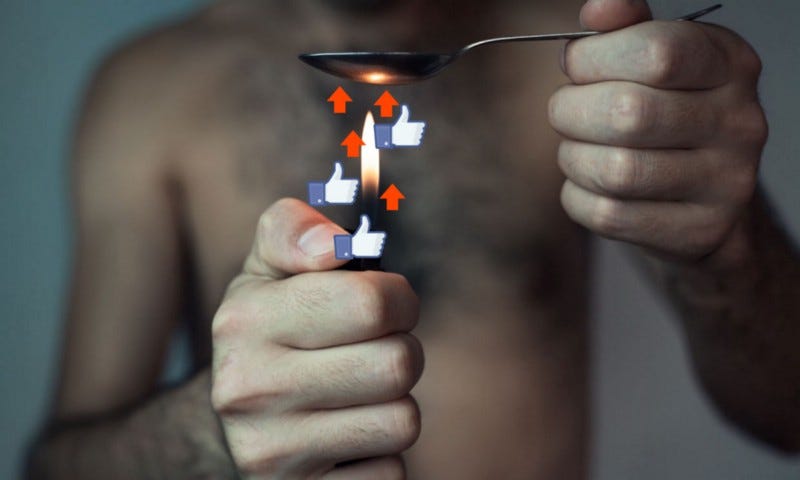Lately the mainstream news outlets have featured many stories describing the pitfalls of social media companies when it comes to how they influence society. Particularly how in their pursuit of “profits over people” these companies can negatively influence wide swaths of people. From the capitol riot that was organized on social media, and anti-vax conspiracies to more personal matters like to body-image issues in teenage girls, or anxiety and depression in everyday users who are being algorithmically-fed emotionally charged content shown to have a higher “engagement” ratio.
Everybody (Well, almost everybody) seems to agree that any benefit these companies are providing to individuals and society is more than offset by their negative impacts. There is a near-constant stream these days in opinion pieces and political podcasts, where you’ll see and hear people lamenting what these companies do, how awful it is for for themselves and society, how if it all just went away we would be better off for it. But the conversation always just sort of… ends there. Just kind of wishing it will all go away. A highly up-voted reddit comment in a news thread made during the recent Facebook outage reads:
Every time something like this [outage] happens I fantasize about the entire site never coming back. But it feels like at this point if FB disappeared someone would just make a new one. I feel like the genie is out of the bottle, does anyone else feel similarly? I would love to be wrong
Think about it for a second: this user is using social media to express their fantasy of it going away forever. They then imply that if the current established companies do go away forever, and others arise in their stead, this user would just sign up for what’s next. Seemingly powerless to avoid it.
The day after the Facebook outage Stephen Colbert did an informal poll of his audience on The Late Show and asked who of them tried to access a Facebook service that day. Most of the audience clapped. A few seconds later, he brings up how the outage that day was the “largest ever” and the audience clapped even louder. Stephen called them out for both being users yet cheering for the outage, playfully jibing them to “Seek help”.

What I think is that maybe Colbert’s joking isn’t really so off the mark- for the broad majority of users, these services are:
Entirely optional facets of a modern functioning lifestyle.
Detrimental on a personal level in the form of increased anxiety and depression (not to mention distraction).
Detrimental on a societal level by promoting extremist and anti-science views. And yet:
The solution most floated by academics and the media is rarely (if ever) to just, y’know, maybe stop spending minutes and hours of your already extremely limited lifetime on these platforms?
I’ve yet to see an op-ed in a major publication, or a podcast outside of the “digital minimalism” ecosphere that earnestly considers the choice of removing ones self from these completely optional public spaces as a viable solution.
Nobody is forcing us to be there. The downsides clearly outweigh any upsides. The relationships being “maintained” on these platforms are usually little more than simulacrums of real relationships. And yet nobody seems to question that their own presence there could be directly contributing to the popularity of these platforms.
The comparison of social media companies to “Big Tobacco” is frequently being made lately. It’s not a perfect analogy, but it’s close enough to work. The companies provide something that is bad for people, addictive, and their management regularly lies about the harmful effects in efforts to delay as long as possible the government regulations they knows will eventually come.
I think a big part of the reason nobody is willing to consider their own actions as contributory is that it would be admitting that they are addicted. And these platforms are addictive.
For that reason I’m always hesitant to place the blame fully on the users. Yes, it’s foolish to get addicted to a harmful substance, but it’s not always known in advance how harmful some things can be. But importantly- once addicted it becomes increasingly difficult to quit.
However there is still a level of personal responsibility involved that I rarely see being addressed, and that is this:
People join Facebook and stay on Facebook because their friends and families are on Facebook. They do that (to some degree) because YOU are on Facebook.
Ask yourself: Do I need to be there? Do I need to contribute to these platforms that are killing people for profit? And maybe also ask yourself if you even want to be there? Maybe the simplest starting point to limiting these companies’ influence on our society and culture is also the most obvious.
Maybe… just say “no”.





